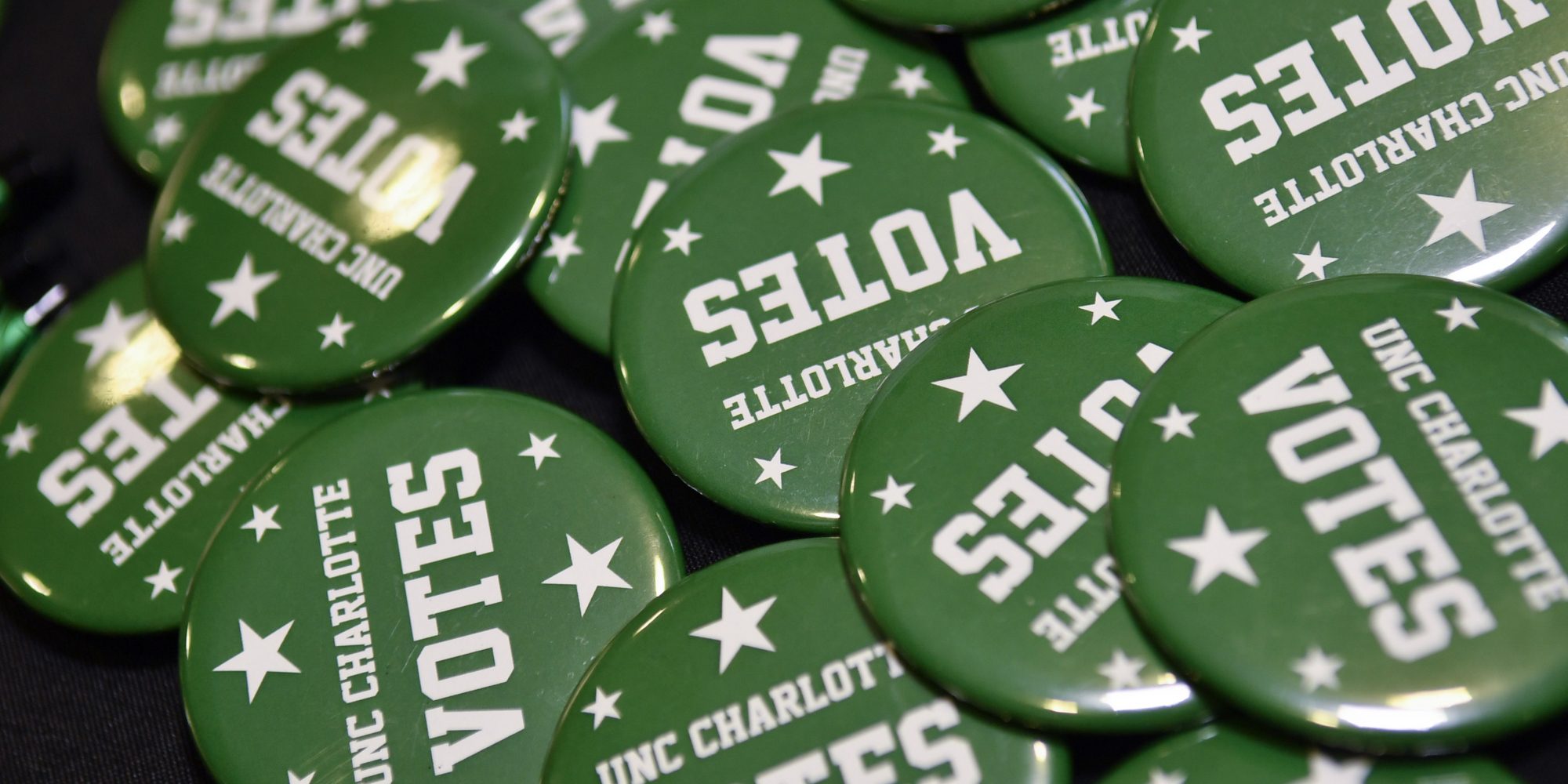Voter ID
NC Voter ID Laws
Beginning with municipal primary and general elections in 2023, voters will be asked to show photo identification when voting in North Carolina. The following are acceptable photo IDs for voting:
-
College or university student ID approved by the State Board of Elections, including a physical 49er Card (virtual cards are not approved for voting)
-
North Carolina driver’s license
-
State ID from the NCDMV (also called “non-operator ID”)
-
Driver’s license or non-driver ID from another state, District of Columbia, or U.S. territory (only if voter registered in North Carolina within 90 days of the election)
-
U.S. Passport or U.S. Passport card
-
North Carolina voter photo ID card issued by a county board of elections (see Get a Free Voter Photo ID).
-
State or local government or charter school employee ID approved by the State Board of Elections
-
Military or veterans ID card (with photo) issued by the U.S. government
-
Tribal enrollment card (with photo) issued by a tribe recognized by the state or federal government
-
ID card (with photo) issued by an agency of the U.S. government or the State of North Carolina for a public assistance program
If a voter does not have an acceptable photo ID, they can get one for free from their county board of elections or the N.C. Division of Motor Vehicles (NCDMV). All voters will be allowed to vote with or without a photo ID. If a voter cannot show photo ID when voting in person, they can still vote by filling out an ID Exception Form.
More information regarding voter IDs, including information regarding free voter ID cards and the ID Exception Form, can be found on the North Carolina State Board of Elections website at https://www.ncsbe.gov/voting/voter-id.
Qualifications to Vote
To register to vote and vote in a North Carolina county, a person must meet the following qualifications:
- Must be a U.S. citizen.
- Must be a resident of the county, and prior to voting in an election, must have resided at his or her residential address for at least 30 days prior to the date of the election.
- Must be at least 18 years old or will be 18 by the date of the next general election.
- Must not be serving a sentence for a felony conviction (including probation or on parole). If previously convicted of a felony, the person’s citizenship rights must be restored. Citizenship and voting rights are automatically restored upon completion of the sentence. No special document is needed.
- Must rescind any previous registration in another county or state.
